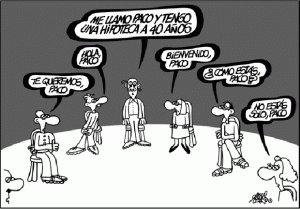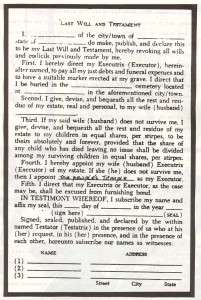HAVE YOU ALREADY PLANNED YOUR INHERITANCE TAX?

The Inheritance tax imposes taxes on an inheritance received because of death. This tax is paid after a person’s decease and the heir is the taxpayer legally bound to pay it. It shall be paid within the following 6 months since the person deceases. Here below we present an example in order to obtain a better understanding on this tax:
Mr. Smith deceased last January 2012; once he retired and sold his home in England in 2003, he moved together with his wife to Andalusia. Then, they bought a small semi-detached house with very nice views to the sea, which they enjoyed together for all these years.
After Mr. Smith’s decease, his wife initiated the testamentary procedures and she was surprised when she found out that she had to pay 15,490.82€ for the Inheritance tax when inheriting her husband’s estate.
Why did she have to pay such an amount?
Assessed value of the 50% of Mr. Smith’s property__125,000.00 €
Money in Mr. Smith’s current account____________10,000.00 €
Total amount of Mr. Smith’s estate______________135,000.00€
Mrs. Smith’s Inheritance tax payment total account: 135,000.00€ minus 15,956.87 € (reduction allowed because of the beneficiary’s relationship), equals 119,043.13€ (taxable income). According to the current assessment scale, the result is a total tax due of 15,490.82€. That is to say, the widow had to pay 13.01% of the estate total value awarded.
How could this payment have been reduced? First of all, Mr. and Mrs. Smith should have been registered as residents in the municipality of the Town Hall, called in Spain Padrón Municipal, when they bought their home because heirs are allowed to benefit from some tax reductions for Inheritance tax purposes when proving their residence in Andalusia for at least two years and a half during the last five years. A certificate of registration as a resident in the municipality is required to prove this fact.
If Mr. and Mrs. Smith had been registered as residents in the municipality, the widow would not have had to pay any Inheritance tax, because the heirs-residents in Andalusia next of kin of spouse are tax exempt from paying Inheritance tax when the value of the awarded estate does not exceed 175,000.00€, and the heirs pre-existing wealth is less than 402,678.11 €uros.
Apart from this tax exemption, other tax exemptions are applied, as for example, 99.99% reduction when the transferred home has constituted the habitual residence of the deceased. The certificate of registration as a resident in the municipality is required one more time to prove it.
In Spain, Inheritance tax is administrated and collected by regional governments, so that they establish their own regulations to be applied within their own region. In this case, the above mentioned tax exemptions are applicable in Andalusia.
Mr. Smith’s example has been presented above, because many of the foreign citizens who are resident in Spain declare in their Last Will that the survivor spouse inherits the whole of the deceased’s estate. Then, we wanted to provide a simple and practical example related to Inheritance Tax, taking into account that it is essential to make one’s will in Spain only for the estate placed in Spain in order to make the legal procedures easier.
In addition, the Inheritance Tax in Spain is considered a progressive tax; therefore, the higher the value of the inherited estate, the bigger the tax burden for the heir. Furthermore, the heirs’ degree of kinship may be also penalized, so that the deceased’s cousins or friends may pay more than his wife or children for the same awarded estate. For example, if the total value of the inheritance is 400,000.00€, the deceased’s wife or child non resident may pay 27%-28% approximately of this amount for Inheritance Tax, that is, 112,000.00€; on the other hand, the deceased’s cousin or friend, resident or not resident in Andalusia, may pay the double—about 224,000.00€.
Some financial products, as Life Insurances, are very interesting in order to reduce the tax effect for heirs—pursuant to legal provisions, this type of products are firstly planned to pay the heir’s Inheritance tax and any residuary estate may become part of the heir’s estate.
A good tax planning is important to minimize the fiscal effects of the Inheritance tax. Most of the times, it is a question of looking at the figures and analyzing what is the most interesting decision depending on each particular case.
Author: Gustavo Calero Monereo, C&D Solicitors (lawyers)
Torrox-Costa (Malaga/Costa del Sol/Andalucia)




















